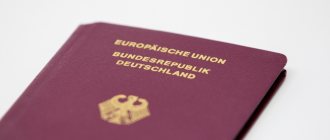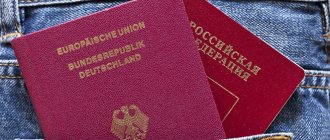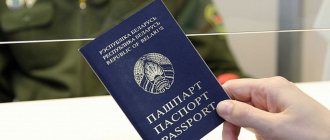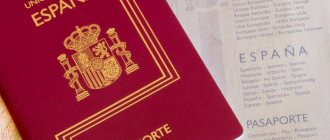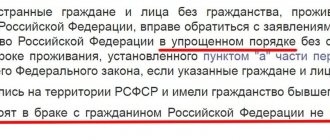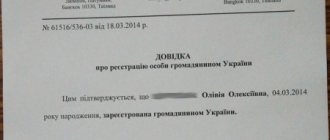What is the difference between citizenship and nationality
When filling out questionnaires, many people confuse their citizenship and nationality. But from a legal point of view, these are two completely different concepts. In order not to make mistakes, you need to clearly define what citizenship is.
The question of citizenship involves a person's relationship to a specific country. Nationality is belonging to a particular ethnic group. In multinational countries there live people who have different nationalities. For example, citizens of the Russian Federation may be Russian, Tatar, Chuvash, Yakut or Buryat.
According to the Constitution of the Russian Federation, all Russians have the same rights and responsibilities, regardless of the ethnic group to which they belong. In addition, it is not necessary to indicate nationality in documents. This can only be done at your own discretion.
But if you, for example, apply for repatriation to Israel, Germany or other states, then the basis for this is precisely the fact that you descend from representatives of a certain people. In this case, information about ethnicity is mandatory.
So, if the application form contains columns “citizenship” and “nationality”, then in the first you must indicate the country whose passport you have, and in the second you must enter an ethnic characteristic (optional).
They should be filled out like this:
- Citizenship: Russian Federation
- Nationality: Russian (Tatar, Chuvash, Bashkir, Jew, Moldavian, etc.).
If you live in Russia, but have a passport from another country (for example, Germany), then this option is possible:
- Citizenship: Germany
- Nationality: Russian (German, Tatar, Chuvash, Bashkir, Jew, Moldavian, etc.).
Rights and responsibilities of stateless persons
All stateless persons permanently residing in the territory of any country have administrative rights and responsibilities. In European countries, capable stateless persons have the opportunity to enjoy all the social benefits provided to them.
The only prohibition for people with this status is that they do not have the right to participate in elections at the local or state level. That is, according to the laws, in Europe a stateless person does not have the right to hold a high government position, but he can work and study.
Capable stateless persons have the right to reside in the republic only if they have a residence permit or a temporary residence permit in this republic. If a stateless person does not have a permit, then he is obliged to leave the country after 3 months of stay.
Otherwise, the person without citizenship will be deported.
As for Russia, it can be noted that in this country stateless people do not have the right to participate in elections. A stateless person can easily obtain health insurance. Stateless persons also have full rights to enter or leave the state. A person who does not have civil status has the right to officially find employment and pay taxes. Employment and payment of taxes are regulated by Russian Law No. 115.
According to this law, all stateless persons wishing to find a job must obtain a patent.
All employed persons of legal capacity are required to pay a tax of 1.8 percent of their monthly salary. This tax is paid to the social insurance fund in case of unemployment. If a stateless person loses his job, he can count on this benefit.
Stateless persons cannot hold positions in the civil service. That is, a person without citizenship has no right to work as a prosecutor, notary, judge, etc. Such persons, according to legal provisions, can work no more than 40 hours per week. Also, employed stateless persons are provided with sick leave and vacation.

Providing sick leave
Persons without citizenship have the right to communicate on equal terms with residents of Russia.
It is worth remembering that in addition to rights, a stateless person also has responsibilities. Thus, after entering the Russian Republic with a visa or other permit, a person without citizenship is required to register within the first 3 days after entry. Migration registration is carried out at the regional branch of the Main Directorate for Migration.
A competent person without citizenship is subject to both administrative and criminal liability for failure to comply, violation or non-compliance with basic provisions, rules and existing laws. This concerns responsibility for compliance with the migration regime.
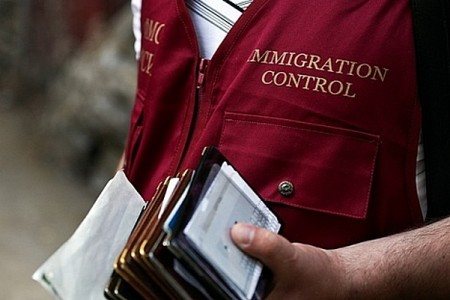
Deportation
In case of violation of duties and responsibilities regarding staying within the deadline for permits or visa documents, a capable person may be deported from the country. The decision is made in court. All costs associated with deportation are borne by the offender.
For administrative violations, a stateless person can be expelled from the country. Expulsion is a forced departure by court decision. All costs associated with forced departure are also borne by the offender.
Which forms indicate
There is a column about belonging to a particular state in many questionnaires. You will find it in the forms that are filled out when applying for a foreign passport, visa, residence permit, permanent residence, temporary residence permit and other legal statuses. You must also indicate your citizenship on your job application.
The information must be submitted correctly, otherwise you may be denied the requested document and will have to start the registration process all over again. In order to avoid mistakes that can delay the resolution of the case for a long time, it is important to correctly understand what citizenship means in the application form: in this line you need to enter the name of the country whose passport you hold.
Russian-language questionnaires
Let’s take a closer look at the question of how to correctly fill out the “citizenship” field.
In application forms in Russian, you cannot write that your citizenship is Russian or Russian. In this paragraph, the following words should not be used: “Russian”, “Russian”, “Russian”, “Russian”, as well as the name of the country “Russia”, the phrase “citizen of Russia”. All of these formulations will be incorrect.
There is a rule according to which in applications for official documents the full name of the country must be indicated in the nominative case: “Russian Federation”.
When entering the civil service, some organizations (for example, the Federal Bailiff Service) require that “citizen of the Russian Federation” be written in the corresponding paragraph. Must be in the masculine gender. Please check these requirements before completing the employment application.
Many people are interested in how to answer the question about citizenship in a questionnaire correctly if a person has passports from several countries.
Some applications require information about all types of citizenship that the applicant has (dual or second), as well as the previous one, if it has been changed. If you have passports from two countries, it is important to correctly indicate their status.
Dual citizenship is a situation where two states have signed an international treaty on mutual recognition of each other’s citizenship.
The Russian Federation has such an agreement only with Tajikistan. Since 1993, a similar agreement was in force with Turkmenistan, but since May 2015 it was terminated. Therefore, dual citizenship status is only recognized for persons who received passports between 1993 and 2015. In all other cases, we are talking about second citizenship.
Which country would you rather live in? ⚡ Take the test in 2 minutes
Second citizenship occurs when a person has two passports, but there is no international agreement between the states that issued them to him on the recognition of dual citizenship; in each country he will be considered only its citizen.
If you have a second passport, you must indicate not only the country that issued it to you, but also information about this document. For example:
- Citizenship: Germany
- Passport: type P code D No. C1VR5NW0T, issued 04/20/2010 in Cologne
- Status: second
If you were a citizen of another country in the past, then in the application you need to indicate when and for what reason you stopped being one. For example: “In 2008, I changed my citizenship of Kazakhstan to the citizenship of the Russian Federation in connection with my move to permanent residence in the Russian Federation.”
For women who married a Russian, the wording may sound, for example, like this: “In 2005, I changed my Moldavian citizenship to the citizenship of the Russian Federation in connection with marriage with a citizen of the Russian Federation and moving to permanent residence in the Russian Federation.”
It should be remembered that when filling out the “citizenship” line, the use of abbreviations is not allowed. The name “Russian Federation” cannot be abbreviated to “RF”. This is allowed only in internal documents of commercial companies. But in all other cases the name of the state should be written in full.
The only exception to this rule is “USSR”. Although there is no country by that name these days, it is sometimes necessary to mention it if the application form contains a “place of birth” column. Persons born before 1991 on the territory of the former Soviet Union must indicate this state as their country of birth. For example: “Mr. Tver, USSR."
If documents are filled out electronically, then the “USSR” item may not be in the list for selecting the desired state. In this case, you need to write the state whose passport you currently have.
Questionnaires in foreign languages
When filling out forms in a foreign language, you need to take into account that in some European languages (for example, French) the concepts of “citizenship” and “nationality” do not differ. If you come across the words nationalité, Nationalität and the like in a European document, then we are talking specifically about belonging to a state, and not to an ethnic group.
In English there are separate terms Citizenship (denotes belonging to a country) and Nationality (nationality).
Russian citizenship in English should be indicated in the “Citizenship” line as follows: Russian Federation. It is not allowed to write “RF”; the variants Russia or Russian are also unacceptable.
If the form has a “Nationality” column, then indicate your ethnicity: Russian (Ukrainian, Moldavian, German, etc.). If you do not know how the name of your nationality is written in English, use Google Translator or ask a staff member for advice.
Please remember that the use of abbreviations is also prohibited in international documents. The only exception is the USSR (USSR).
If the questionnaire is written in a language that is unfamiliar to you, be guided by the English-language signatures under the headings. If they are not available, ask the employee of the institution for an English or Russian version of the form. All information about yourself in such forms must be filled out in Latin, using transliteration rules.
The meaning of the word citizenship
a concept that has political, legal and social meaning. In political and legal terms, the city is synonymous with citizenship, as a person’s belonging to a certain country or state. In contrast, citizenship as a social phenomenon means that an individual, as a member of a given civil society, has a certain set of rights that guarantee him equal legal status with state-political entities. These rights are traditionally called civil, or natural, existing along with the political rights of the subject. The concept of citizenship has its origins in the worldview of the New Age, when the indicated interpretations of this concept were first developed. Spinoza was one of the first to draw attention to the differences between “citizenship” and “nationality”: in the first case, we are talking primarily about the possession of rights, in the second, the emphasis is on the presence of duties. Locke, Kant, Hume also named the first sign of citizenship - the possession of property, as the main advantage granted by life in civil society and inalienable by political power. If the status of a subject was determined by the operation of the system of established (state) law, then the rights of a citizen were interpreted as inalienable, “natural”. J. Priestley identified civil rights, which determine the status of citizenship, as primary in relation to political ones. In modern political science, “active (social) citizenship” and “passive citizenship” (as “citizenship”) are distinguished. T. Marshall defines three components of citizenship: freedom of speech and personal integrity; the right to participate in the creation of those laws that citizens must obey; the right to such social conditions of life that exclude the possibility of discrimination against an individual due to the very fact of birth. True citizenship, as a social and not a state-legal phenomenon, is impossible without the right of economic property, because the latter is the basic civil (social) right of the individual. Therefore, citizenship is not so much a legal status as a social process, the core of true social development, although the beginning of this process is, of course, the possession of political rights, for the equality of all before the law and the associated civil rights mark the starting point of this development. The mixture of “civil” and “political” is characteristic of the conditions of a totalitarian society, the semantic center of which is panpolitism, when a person’s awareness of his civil status is clearly associated with his membership in state, party and other political structures, and all the wealth of orientations of civil behavior is reduced to the phenomena of political order. “Active citizenship”, as a consequence of civic participation, is a part of civil society and can therefore be called “social citizenship”. The main path of its formation is individualization, or the liberation of the individual from the power of political-collectivist structures. According to the distinction between types of citizenship, two types of social behavior are distinguished in relation to the state and the exercise of potestary functions: executive and initiative. The institution of “active citizenship” not only creates a member of civil society from a person, but also thereby eliminates external obstacles to this, opens up a space of freedom that is constitutive of civil society and creates effective protective measures against the paternalistic aspirations of the state bureaucracy. Then the state considers the individual no longer just as a subject, but as a legally equal person who is aware of his own interests. The most important indicator of active citizenship, proactive behavior and civic participation is civic culture.
Domanov V.G.
For residents of post-Soviet countries
If the applicant is a citizen of post-Soviet countries, then the general rules are the same: in the “citizenship” column the name of the country is written without abbreviations and abbreviations, in the “nationality” column the ethnicity is indicated.
Here are answers to some of the most common questions.
How to write the citizenship of Kazakhstan: enter the full name of the state in the appropriate column - “Republic of Kazakhstan”. You cannot simply write “Kazakhstan” or “RK” - this will be considered a mistake.
If you doubt whether citizenship is spelled correctly: “Ukrainian” or “Ukrainian,” then keep in mind that both options are incorrect. In the corresponding paragraph the name of the state is written - Ukraine. “Ukrainian” is the name of a nationality.
The same rule should be used if you need to write Belarusian citizenship in the application form: indicate the full name of the country - the Republic of Belarus.
Acquiring Russian citizenship
Chapter II of Law No. 62-FZ is devoted to acquiring the status of a Russian citizen.
There are four grounds that guarantee the acquisition of the status of a Russian citizen:
- birth on the territory of the Russian Federation;
- admission to citizenship of foreigners and stateless persons on a general basis or according to a simplified scheme;
- restoration of citizenship to former Russian citizens;
- obtaining Russian citizenship on other grounds that do not contradict Russian legislation and international treaties with Russia.
Following the principle of reducing statelessness, Russia provides ample opportunities for various categories of the population to obtain citizen status. However, there are also limitations. The law lists in detail the conditions for acquiring citizenship for those who can become citizens of the Russian Federation, and the rationale for rejecting applications for those who will be denied application.
Other conditions include option - the ability to choose civil status in the context of changing the borders of the state in the manner and within the time frame established by law.
Read detailed information about the different ways to obtain Russian citizenship.
Double citizenship
Dual citizenship, or bipatrism, implies the existence of a legal connection and a person’s affiliation with two states, which must be documented.
Answering the question of what kind of citizenship Russians can have other than Russian, let us clarify that bipatrism is possible only on the basis of the conclusion of an international agreement. In Russia, the Agreement on the settlement of issues of dual citizenship was concluded only with the Republic of Tajikistan (ratified on December 15, 1996 No. 152-FZ).
According to the legislation of the Russian Federation, citizens of Russia, that is, those who have federal citizenship, are also allowed to have a passport of another state. The fact that a person has two or more citizenships does not detract from his rights and freedoms as a citizen of the Russian Federation, but does not relieve him of his duties to the state. However, in the absence of an international treaty, we are talking, rather, not about dual, but about second or multiple citizenship.
Take a closer look at the dual citizenship issue.
